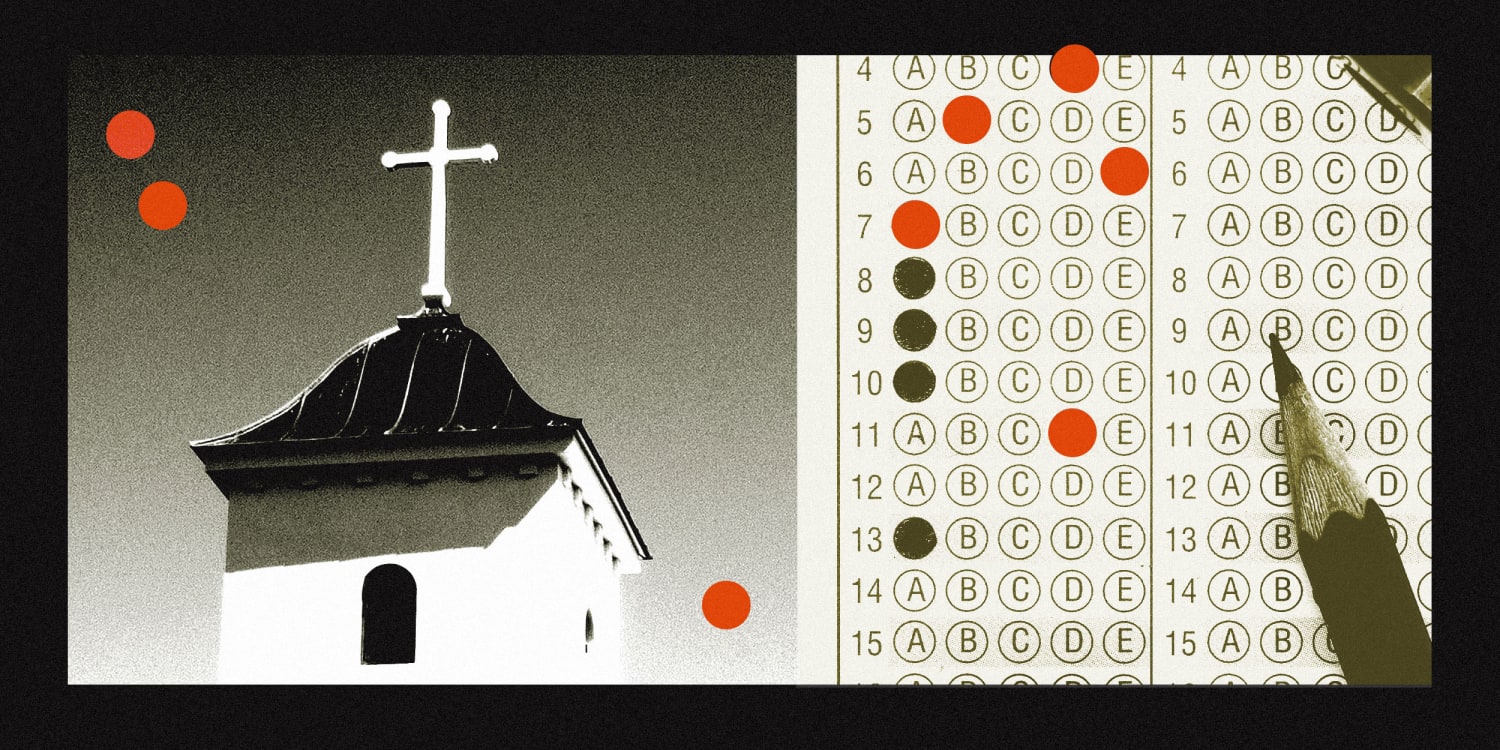A new college entrance exam that has become popular among Christian schools and conservative political groups may soon expand its footprint to include Florida’s public universities — following a boost from the DeSantis administration.
The Florida Board of Governors, which oversees the state’s public universities, is expected to vote at its August meeting on whether to accept Classic Learning Test scores for admissions, in addition to the SAT and the ACT. If the board approves it, Florida would become the first public university system in the country to accept the test.
The Classic Learning Test, or CLT, was created in 2015 as an alternative college entrance exam rooted in a teaching model that emphasizes the humanities, morality and classical literature. The test has found favor in recent years among some conservatives as an antidote to progressive influence, and it is now accepted by more than 200 predominantly private universities.
Florida’s consideration of the CLT follows a high-profile dispute between the administration of Gov. Ron DeSantis and the College Board, which administers the SAT, over an Advanced Placement African American history course offered by the organization. After he accused the AP course of left-wing bias, DeSantis said Florida would look for alternatives to other College Board products.
Since the AP spat, Florida has accelerated the rise of classical education and the CLT. DeSantis signed a bill this year that opened the state’s Bright Futures college scholarship program to accept Classic Learning Test scores, in addition to ACT and SAT results, to determine eligibility.
After DeSantis appointed several conservatives as trustees of New College of Florida, in Sarasota, the public liberal arts school announced in May that it would accept the CLT.
“He wants to sort of shove his thumb in the eye of the College Board by essentially saying: ‘We don’t need your SATs anymore, either. We don’t need your African American studies course, and we don’t need you, so go away; we found an alternative,’” said Chester Finn Jr., a top official in the Education Department during the Reagan administration.
Jeremy Tate, the founder of the CLT, said what’s happening in Florida is part of a broader movement in education circles frustrated with progressive influence.
A top official at the Florida Education Department tweeted this year, “CLT not CRT!” referring to critical race theory, an academic study of racism’s pervasive role in society, which the state banned from public schools.
“It’s certainly a lot bigger than just the test itself,” Tate said. “I think everybody knows there’s something deeply, deeply wrong in mainstream education right now.”
The College Board said in a statement to NBC News that because standardized tests can be such keystones for students’ career trajectories, “it’s critical that those tests are well researched and carefully developed to ensure fairness,” and it said it has a “team of experts” to evaluate its exams.
The College Board posted an analysis this month that criticized the CLT’s methodology and rigor.
The ACT, a nonprofit organization, declined to comment.
Tate, the CLT founder, said the College Board has been trying to discredit his exam by saying it needs more participants to be proven. But that, he said, is untrue.
“They want to say unless you have 500,000 data points then any of your research is completely inaccurate, and that’s a good way to keep competitors out of the market,” he said.
The CLT was designed to eschew the Common Core curriculum standards and intentionally favor Aristotle, Benjamin Franklin and Jane Austen over 20th century progressive authors, Tate said. Christopher Newport University in Virginia became the first public university to accept the CLT in 2018. It quickly caught on with home-schoolers and private Christian schools and colleges.
Tate, a former college counselor with a master’s in religious studies, declined to share how many students take the CLT annually. He added that he’s talking with officials in two other states in addition to Florida, which he declined to identify.
The primary difference in the CLT lies in its choices for literature. The exam may include passages from Pope John Paul II or the Christian author C.S. Lewis, which Tate said prompted one public university to explicitly tell him that’s why it won’t use the CLT. Tate said that to “censor the entire Catholic and Christian tradition,” as he accuses the SAT and the ACT of doing, excludes important influences and foundations of Western civilization.
When Louisiana Christian University, in Pineville, began accepting the CLT in 2018, a top admissions official at the private school told a reporter, “We are very intentional about our Christian faith here, and the classic learning style and CLT don’t shy away from religion, religious topics or ethical topics.”
Similarly, Sarah Clark, the head of enrollment for Southeastern University, in Lakeland, Florida, said in an interview that her institution began accepting the test to expand its exposure to its “target audience,” which is largely the Christian and home-school population.
Out of 86 people on CLT’s advisory board, 59 are part of Christian organizations, such as religious schools, education groups and publishing companies. Ten board members work for conservative political groups, such as Kevin Roberts, the president of the conservative Heritage Foundation, and Chris Rufo, a right-wing activist who has advised the DeSantis administration. The board also includes professors from Harvard and Princeton, as well as Green Party presidential candidate and left-wing activist Cornel West.
But backers of CLT worry that the momentum among red states — in particular Florida, where DeSantis is a major GOP presidential contender — is giving classical education an undeserved political reputation.
“You don’t want them battling against each other like the SAT is the liberal test and CLT is the conservative test — I don’t think that’s a great place to be,” said CLT board member Jessica Hooten Wilson, a literature professor at Pepperdine University, in Malibu, California. Hooten Wilson, who considers herself a moderate, said the CLT strikes a middle ground because it “doesn’t leave anybody out,” including religious thinkers.
Critics remain unconvinced.
Akil Bello, who ran a test preparation company and is a senior director at the civil rights education group FairTest, said the CLT’s focus on classical texts and century-old teaching methods doesn’t serve students well.
“It pretends that we haven’t moved forward 50 years and technology isn’t entirely different than it was and the way students interact with the world isn’t entirely different than it was,” Bello said. “The older the language you use, the more likely you’re not evaluating a student’s ability to understand what’s read — you’re evaluating their comfort with Old English.”
Finn, the former Reagan administration official who’s now a senior fellow at the right-leaning Thomas B. Fordham Institute, said that he’s not opposed to the CLT but that it has arrived amid momentum to do away with college entrance exams because of criticism that they skew toward wealthy students who can afford tutoring. The SAT and the ACT are already used by such a massive market share that the CLT’s influence is trivial at this point, he said.
“We’re talking about a puppy dog alongside two horses,” he said.
Source: | This article originally belongs to Nbcnews.com









